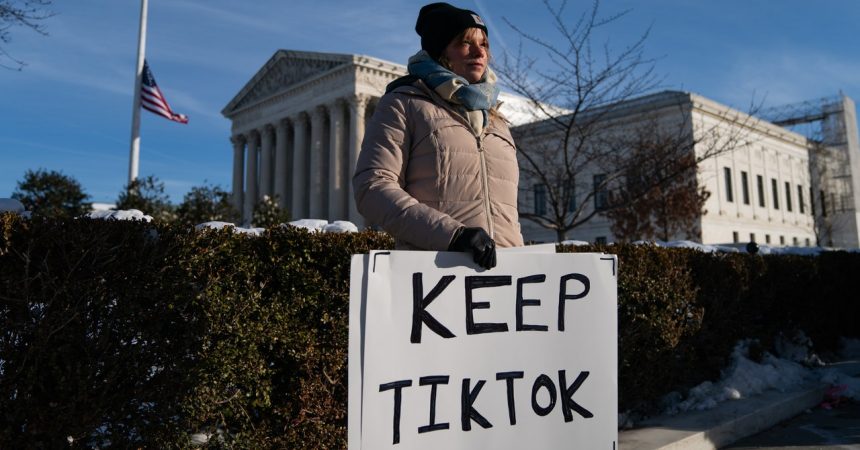The year is 2025, and a pervasive sense of disillusionment hangs heavy in the air, a digital malaise mirroring the broader societal anxieties gripping America. Traditional social media platforms like X (formerly Twitter) and Meta (Facebook and Instagram) have become breeding grounds for negativity, overrun with trolls, hate speech, and manipulative propaganda. Driven by the whims of a few immensely wealthy and powerful men grappling with their own insecurities, these platforms have abandoned their responsibility to moderate content, prioritizing engagement over the well-being of their users. This deliberate dismantling of safeguards against harmful content has created echo chambers of toxicity, further exacerbating societal divisions and eroding trust in online discourse. The digital landscape, once envisioned as a democratizing force, has devolved into a battleground of misinformation and negativity, leaving users feeling increasingly isolated and vulnerable.
In stark contrast to this bleak panorama, TikTok emerged as a vibrant oasis of personalized content and genuine connection. Unlike its counterparts, TikTok wasn’t merely a platform for passive consumption; it was an active, engaging experience, a dynamic tool for learning and self-discovery. From culinary explorations and hair care tutorials to financial advice and artistic inspiration, TikTok offered a diverse and enriching array of content tailored to individual interests. This personalized approach fostered a sense of community and empowered users to cultivate unique lifestyles, fostering a positive impact absent from other social media platforms. The algorithm’s uncanny ability to anticipate user preferences created a seamless and engaging experience, transforming the platform into a personalized hub for learning, entertainment, and connection. For many, TikTok became more than just an app; it was a virtual mentor, a constant companion offering guidance and support in navigating the complexities of modern life.
This personal value proposition stood in stark contrast to the dry, abstract warnings issued by the US government regarding TikTok’s potential threat to national security. The narrative of Chinese data collection and foreign influence failed to resonate with a generation that had grown up in a digitally transparent world, accustomed to the constant exchange of personal information online. For younger users, the perceived benefits of TikTok far outweighed the nebulous risks outlined by government officials. They saw TikTok not as a Trojan horse for foreign espionage, but as a source of empowerment, a platform for creativity, and a gateway to a global community. The government’s concerns, rooted in geopolitical anxieties, seemed distant and irrelevant compared to the tangible, positive impact TikTok had on their daily lives.
The looming ban on TikTok, therefore, was met not with fear or compliance, but with a mixture of defiance and lament. Users mourned the impending loss of a platform that had become integral to their lives, a source of knowledge, inspiration, and connection. They questioned the government’s priorities, highlighting the perceived hypocrisy of banning a beloved app while seemingly more pressing societal issues remained unaddressed. The ban was seen not as a necessary security measure, but as a misguided attempt to control and censor a platform that had empowered individuals and fostered a vibrant online community. The government’s arguments, steeped in national security jargon, failed to resonate with users who valued TikTok’s tangible contributions to their lives.
The final days of TikTok were marked by a bittersweet blend of farewells and sardonic commentary. Creators urged their followers to migrate to alternative platforms while simultaneously lampooning the government’s rationale for the ban. The prevailing sentiment was one of incredulity, a disbelief that an app offering such profound personal value could be deemed a national security threat. Users expressed a sense of betrayal, feeling as though the government had prioritized abstract geopolitical concerns over the well-being and empowerment of its citizens. The ban was perceived as a heavy-handed act of censorship, a silencing of a platform that had given voice to countless individuals and fostered a thriving online community.
TikTok’s success lay in its ability to operate on both a macro and micro level, simultaneously shaping cultural trends and empowering individual expression. It was a catalyst for viral memes, fashion trends, and musical discoveries, while also providing a personalized platform for artists, entrepreneurs, and everyday individuals to connect with a global audience. It democratized access to information, providing a platform for marginalized voices and fostering cross-cultural exchange. Its impact on culture and commerce was undeniable, a testament to its ability to harness the power of social media for both individual empowerment and collective creation. The ban on TikTok represented not only the loss of a beloved app, but also the silencing of a powerful engine for cultural expression and economic opportunity.



